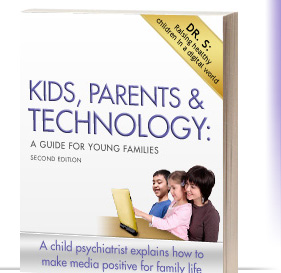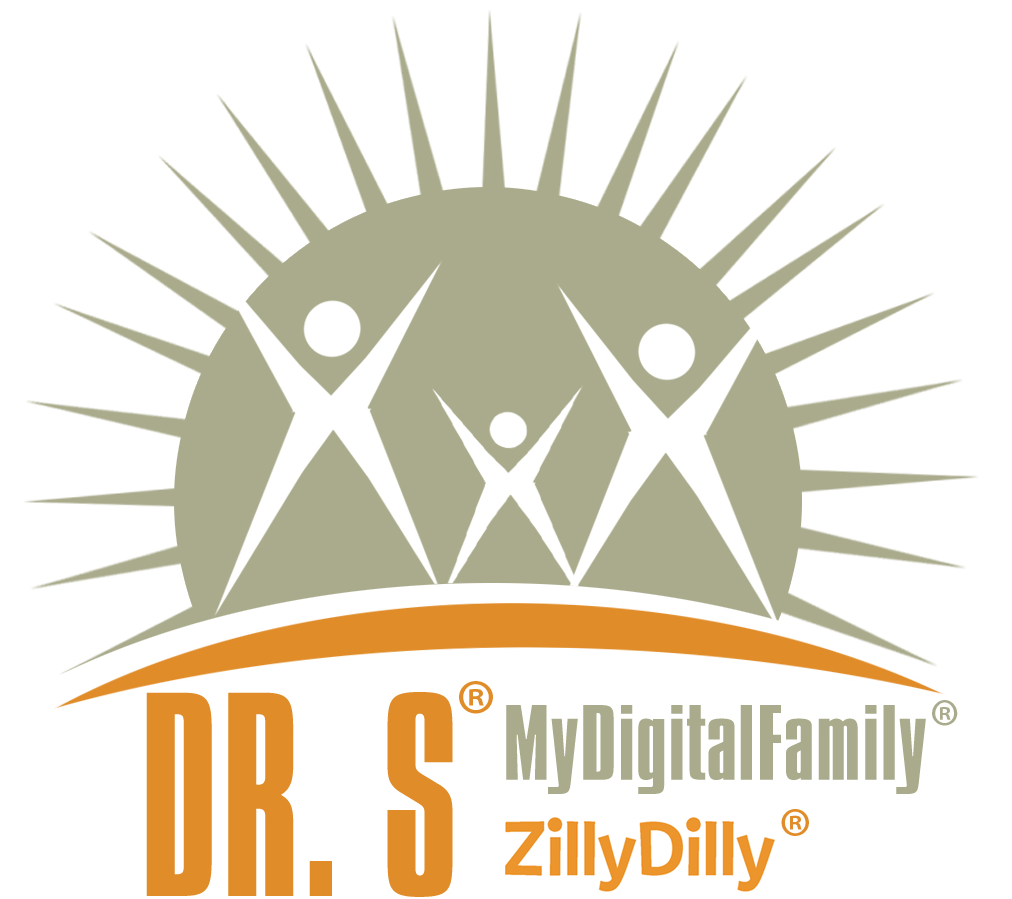As younger and younger kids increasingly use powerful tools like the iPad, Dr. Eitan Schwarz, a leading child and adolescent psychiatrist and inventor of ZillyDilly for iPad, urges parents and educators to learn to manage these important interactions systematically and effectively
Three-year-old David recently had such a major tantrum on board a passenger plane when his father yanked the iPad to turn it off and click his seatbelt for take-off that the aircraft returned to the gate to kick him off (http://newsfeed.time.com/2012/06/02/3-year-old-kicked-off-airplane-for-crying/?iid=ec-main-mostpop2?iid=ec-main-mostpop2).
According to leading Chicago child psychiatrist Eitan Schwarz, MD, a Northwestern Medical School faculty member, “Such an event is not surprising. If he were older, the child might say, ‘No fair. The iPad is the awesomest thing ever and I love it and you yank it away and OK, maybe I have ADD or something, or maybe you never taught me how to obey your no’s, but you were rude, and you really humiliated and let me down, Daddy.’ You can blame the parents, you can blame the kid, you can blame technology, you can blame the airline or anyone you want. But the facts are clear: Kids are fascinated by interactive technology ( https://www.chicagotribune.com/2015/08/15/kids-are-enamored-with-gadgets-but-readings-benefits-hard-to-beat/). In fact, we are all enchanted and will stay so as more and more magical devices keep coming faster and faster (https://mydigitalfamily.org/?p=3035).”
Dr. Schwarz, also known as Dr. S, author of “Kids, Parents & Technology: A Guide for Young Families” and inventor of ZillyDilly, a curated iPad Internet manager, continues, “And parents are lost about managing technology to fit appropriately into children’s developmental needs and family life. We know even less about harnessing kids’ compelling natural affinity to engage with these devices positively to fully benefit at home or school. Teacher training is just beginning to become coherent and systematic and is not widely available yet,” according to Dr. S.
Nevertheless, parents and schools that can afford them are rushing to buy and install iPads all over the world with only little planning. “Touted as universally potentially the best thing slice sliced bread, iPads can indeed be quite helpful when used for specific goals, especially for kids with special needs, but for the most part the hype is mainly a measure of the devices’ sensational appeal, and they can be harmful when used unsupervised for junk entertainment (http://www.pewinternet.org/), especially as children’s brains are developing.”
So what are parents to do? Dr. S points out, “Incredibly, bottom line, after over a decade of seeing this tech chaos evolve in the homes of many patients and neighbors, there is still almost no coherent systematic widely practiced guidance for most parents or teachers. That’s why I wrote the book to give a comprehensive credible framework and invented ZillyDilly so parents can control content and time online by age and kids’ developmental needs are met.”
Dr. S recommends, “First, you are the child’s model and have the home-court advantage, so stop texting while parenting and straighten out your own tech life. Enforce tech-free times and zones. Teach that these are powerful tools, and learning their correct use is a careful long-term task, like hygiene and other self-care. Bring the iPad home only if you are sure about how you would use it, and make it a part of family life, like any appliance. Be careful — not all “educational” apps are educational, so ask a knowledgable teacher. Always stay in control of the time and content and introduce it to very young kids only for a specific purpose of learning or family interactivity and never for unsupervised isolated entertainment. Introduce technology carefully and stay fully engaged with preschoolers and in some partial ways even with teens. Never let the iPad babysit a preschooler or infant.”
Dr. Schwarz, a researcher himself, is optimistic because researchers and educators are beginning to recognize and address the opportunities and challenges (http://www.naeyc.org/files/naeyc/file/positions/PS_technology_WEB2.pdf), “Actually, you can control the iPad better than any other digital media, so learn how. Think of the iPad as a book. Look at zoos or museums online. Use the iPad as you might a board game, and use as many “old fashioned” books, toys, crayons, and other games as possible, including physical activities, while limiting “screen time”. While there is lots of debate about “screen time”, not all screens are the same and no general rules can apply here except to use these devices only to benefit the young child’s development and family life.”



Tots Love iPads, so Please Teach Them to Use Them Right
As younger and younger kids increasingly use powerful tools like the iPad, Dr. Eitan Schwarz, a leading child and adolescent psychiatrist and inventor of ZillyDilly for iPad, urges parents and educators to learn to manage these important interactions systematically and effectively
Three-year-old David recently had such a major tantrum on board a passenger plane when his father yanked the iPad to turn it off and click his seatbelt for take-off that the aircraft returned to the gate to kick him off (http://newsfeed.time.com/2012/06/02/3-year-old-kicked-off-airplane-for-crying/?iid=ec-main-mostpop2?iid=ec-main-mostpop2).
According to leading Chicago child psychiatrist Eitan Schwarz, MD, a Northwestern Medical School faculty member, “Such an event is not surprising. If he were older, the child might say, ‘No fair. The iPad is the awesomest thing ever and I love it and you yank it away and OK, maybe I have ADD or something, or maybe you never taught me how to obey your no’s, but you were rude, and you really humiliated and let me down, Daddy.’ You can blame the parents, you can blame the kid, you can blame technology, you can blame the airline or anyone you want. But the facts are clear: Kids are fascinated by interactive technology ( https://www.chicagotribune.com/2015/08/15/kids-are-enamored-with-gadgets-but-readings-benefits-hard-to-beat/). In fact, we are all enchanted and will stay so as more and more magical devices keep coming faster and faster (https://mydigitalfamily.org/?p=3035).”
Dr. Schwarz, also known as Dr. S, author of “Kids, Parents & Technology: A Guide for Young Families” and inventor of ZillyDilly, a curated iPad Internet manager, continues, “And parents are lost about managing technology to fit appropriately into children’s developmental needs and family life. We know even less about harnessing kids’ compelling natural affinity to engage with these devices positively to fully benefit at home or school. Teacher training is just beginning to become coherent and systematic and is not widely available yet,” according to Dr. S.
Nevertheless, parents and schools that can afford them are rushing to buy and install iPads all over the world with only little planning. “Touted as universally potentially the best thing slice sliced bread, iPads can indeed be quite helpful when used for specific goals, especially for kids with special needs, but for the most part the hype is mainly a measure of the devices’ sensational appeal, and they can be harmful when used unsupervised for junk entertainment (http://www.pewinternet.org/), especially as children’s brains are developing.”
So what are parents to do? Dr. S points out, “Incredibly, bottom line, after over a decade of seeing this tech chaos evolve in the homes of many patients and neighbors, there is still almost no coherent systematic widely practiced guidance for most parents or teachers. That’s why I wrote the book to give a comprehensive credible framework and invented ZillyDilly so parents can control content and time online by age and kids’ developmental needs are met.”
Dr. S recommends, “First, you are the child’s model and have the home-court advantage, so stop texting while parenting and straighten out your own tech life. Enforce tech-free times and zones. Teach that these are powerful tools, and learning their correct use is a careful long-term task, like hygiene and other self-care. Bring the iPad home only if you are sure about how you would use it, and make it a part of family life, like any appliance. Be careful — not all “educational” apps are educational, so ask a knowledgable teacher. Always stay in control of the time and content and introduce it to very young kids only for a specific purpose of learning or family interactivity and never for unsupervised isolated entertainment. Introduce technology carefully and stay fully engaged with preschoolers and in some partial ways even with teens. Never let the iPad babysit a preschooler or infant.”
Dr. Schwarz, a researcher himself, is optimistic because researchers and educators are beginning to recognize and address the opportunities and challenges (http://www.naeyc.org/files/naeyc/file/positions/PS_technology_WEB2.pdf), “Actually, you can control the iPad better than any other digital media, so learn how. Think of the iPad as a book. Look at zoos or museums online. Use the iPad as you might a board game, and use as many “old fashioned” books, toys, crayons, and other games as possible, including physical activities, while limiting “screen time”. While there is lots of debate about “screen time”, not all screens are the same and no general rules can apply here except to use these devices only to benefit the young child’s development and family life.”